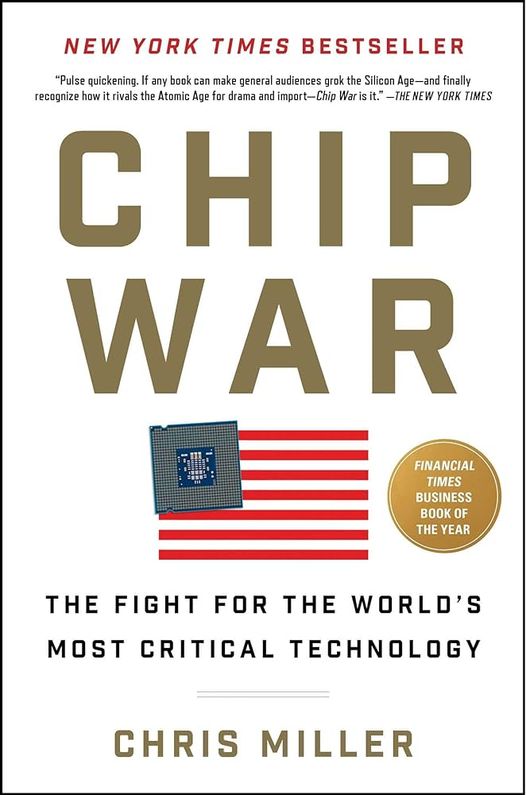here are 10 key lessons you can learn from Chris Miller's "Chip War: The Fight for the World's Most Critical Technology":
1. Microchips are the new oil: Just like oil fueled the 20th century, microchips are the essential resource powering the 21st. From smartphones and missiles to electric vehicles and the stock market, virtually everything relies on these tiny circuits.
2. America's chip dominance is slipping: While the US once led the world in chip design and manufacturing, its edge is eroding. Asian companies like Taiwan's TSMC and South Korea's Samsung are now leading the charge, and China is pouring billions into catching up.
3. Taiwan is the linchpin: TSMC, a Taiwanese company, currently produces the world's most advanced chips. This makes Taiwan a geopolitical flashpoint, as its control over chip production could have major implications for global power dynamics.
4. The chip war is real: The competition for chip supremacy is not just about economics; it's also about national security and military power. Countries are investing heavily in developing their own chip industries to avoid dependence on rivals.
5. Globalization is at risk: The chip war could lead to a breakdown of the globalized supply chains that have underpinned economic growth for decades. Countries may prioritize domestic production over international trade, creating new economic and political challenges.
6. Innovation is key: The next wave of chip technology will be crucial for maintaining economic and military competitiveness. Countries and companies need to invest heavily in research and development to stay ahead of the curve.
7. Collaboration is necessary: While competition is fierce, international cooperation is also essential for addressing common challenges in the chip industry, such as environmental sustainability and cybersecurity threats.
8. The future of computing is uncertain: The rapid pace of chip development is making it difficult to predict the future of computing. However, the rise of AI, quantum computing, and other emerging technologies will likely have a profound impact on our world.
9. We need to prepare for the consequences: The chip war and the rapid development of AI have the potential to reshape our societies in profound ways. We need to start thinking now about the ethical, economic, and political implications of these technologies.
10. The chip war is just the beginning: The competition for technological dominance is likely to intensify in the coming years, not just in chips but also in other critical technologies. We need to be prepared for a world where technological rivalry is the new normal.




